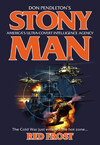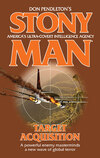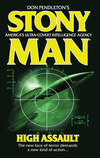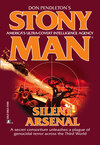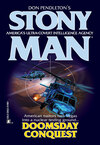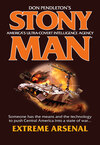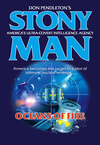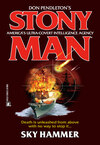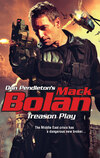Читать книгу: «Red Frost», страница 4
CHAPTER FOUR
Highway 112, ten miles west of Port Angeles,
7:05 a.m. PDT
Clallam County Deputy Sheriff Hiram Turnbull hunkered down beside the roadside ditch. The drainage channel was overgrown, but the bright red soles of a pair of short rubber boots were visible sticking up out of the weeds. He gently pushed the grass aside with the tip of his baton. There were legs in the boots, in jeans. The rest of the body was out of sight, head down in the ditch.
A quarter mile north of Highway 112, a squadron of Navy fighter jets screamed over the strait, flying very low just off the coastline.
On any other day, finding a corpse in a ditch would have been a big deal.
Not on this day.
“Was it a hit-and-run?”
Turnbull rose from the crouch and turned to face the speaker. He towered over the dried-up little guy in the leather porkpie hat who had reported the body. The concerned senior citizen wore a white goatee and a red plaid shirt, and carried a leashed, plaid-caped Chihuahua in the crook of his arm.
“Can’t tell yet,” Turnbull answered. “Why don’t you stand back a bit, sir? Or better yet, take a seat in the back of the squad car while I do what I have to do.” The sheriff’s cruiser stood parked in the middle of the two-lane highway’s westbound side, its roof beacon flashing. Turnbull opened the rear door and gestured for the man to get in.
“Am I a suspect, Officer?”
“Sir, I don’t want you or your dog stepping on anything, or getting clipped from behind by a log truck. It’s for your own safety. When I’m done looking over the scene, we’ll talk.” After the old guy sat down and swung in his legs, he shut the door.
Turnbull hurriedly pulled on latex gloves, then, baton in hand, skidded down the side of the ditch fifteen feet from where the body lay. The drainage gulch was waist deep; he couldn’t see the bottom for all the weeds and blackberry brambles. When he hit bottom, icy cold, flowing water surged over his shoe tops.
“Shit!” he said, remembering the hip boots he kept stowed in his cruiser’s trunk, boots he’d forgotten to put on.
Sweeping aside the undergrowth with his baton so he could see where he was stepping, the deputy worked his way down the narrow channel. There was enough water running to wash away any light debris that had fallen in with the body. As he got close to the corpse, he smelled something nasty. Parting the weeds with the club, he stared down at the seat of the victim’s pants. The poor bastard had lost bowel control shortly before or at the moment of death. Turnbull tapped the befouled jeans’ back pockets with his baton. There was no wallet in either one. From the narrowness of the hips and width of the back, the subject appeared to be male. The head wasn’t visible and the arms were pinned under the torso.
There were no obvious injuries that he could see.
“Shit!” Turnbull said again. He was going to have to turn the body over. He sucked in a breath, held it, then bent deeper into the weeds. Because of the angle and the absence of rigor, the victim wasn’t easy to roll. For a second after Turnbull had done the deed, he couldn’t figure out what the hell he was looking at. Then his brain connected the dots. It wasn’t a silently screaming mouth. The weight of the head hanging down made the horrible red gash under the chin gape six inches wide. The dead man’s throat was cut from ear to ear all the way to the backbone.
Well, that just fucks me royal, Turnbull thought as he straightened.
The deputy sheriff kicked himself for not turning his car around when he heard the first sketchy report about a ship grounding on the Hook. Now it was too late. He couldn’t bag out on an obvious murder in order to get in on even more exciting duty back in Port Angeles. There was nobody coming to back him up out here, either. All available police, fire and ambulance units had converged on the Hook. He was going to have to sit parked on Highway 112 for who knew how long before a supervisor arrived to sign off on the scene and an ambulance hauled away the body.
Turnbull climbed out of the ditch. Tossing down his baton, he leaned over and grabbed the body by the ankles, then he muscled it partway up the slope, dropping the heels onto the road. He wasn’t worried about muddying a crime scene for Clallam County CSI.
There wasn’t any such animal.
After wiping his latex gloves and his baton on the grass, he opened the cruiser’s rear door. “Come on out, sir,” he said. “Have a look at this guy for me.”
With the bulgy-eyed Chihuahua nestled on his arm, the old man squinted down in horror at all the blood. It was caked up solid in the nostrils; it coated the staring eyeballs. “Sweet Jesus,” he murmured. “His head’s practically cut off.”
“Do you know him?”
“I think so. No, I know so. His last name’s Rudolph. He lives over near Freshwater Bay.”
That was a good four miles away. Rudolph was wearing rubber boots, not jogging shoes.
“What’s he doing out here on the highway?”
“How should I know?” the old guy said, crinkling up his nose as he caught a whiff of what Rudolph was sitting on. “Never seen him on foot. He drives one of those new four-door pickups. Japanese-made rig.”
“Color?”
“Gray or light blue.”
“Do you know his address?”
“I don’t know the street or the number, but I think I can find the house if we head over there.”
“Get back in the car, please. Watch your head.”
Technically, Turnbull wasn’t supposed to leave the crime scene unattended, but under the circumstances he knew no one was going swing by and check on him. The victim’s front pockets were turned out. His wallet, watch and ring were already gone. There was nothing to steal but the corpse itself. Turnbull took a yellow plastic tarp from the trunk and securely covered the body to keep crows from pecking apart the face. He festooned the ditch weeds with crime-scene tape, then set out some road flares.
Satisfied with the job, he got in the cruiser and with lights still flashing but siren off he headed west. The radio was jumping with reports from the Hook. Navy personnel were on the ground. A full platoon of SEALs, evidently. The old guy ride-along didn’t understand the chatter. It was all code numbers and jargon.
It sounded like a Steven Seagal movie.
And Turnbull was missing it.
He mashed down the accelerator and the big V-8 laid thirty feet of smoking rubber on the asphalt.
Deputy sheriffing in Clallam County was life in the slow lane. Peeling drunk drivers off telephone poles. Breaking up teenage parties on the beach. Domestic-violence complaints in shabby trailer parks. A case like this roadside body dump would normally have made Turnbull’s year, if not his decade. But in comparison to the sub grounding it was nothing. It was worse than nothing.
It was shit.
Following the old guy’s directions after they got to Freshwater Bay, Turnbull pulled into the driveway of a modest single-story house set back in a grove of fir trees. “Wait here,” he told his passenger as he shut off the engine.
The recycle bins on the concrete front porch were full of empty beer and liquor bottles. He knocked on the screen. He could hear music playing; it sounded like Shania Twain. After a minute or two a short, stout woman opened the door. She was Native American, either Makah tribe or Jamestown S’klallam. It was hard to guess her age. There were creases at the corners of her eyes, but her hair was still stone-black. He had some real bad news for her. This was the worst part of his job.
“Good morning, ma’am,” Turnbull said. “Is this the home of a Mr. Rudolph? Are you his wife?”
“No, I do housework for him once a week. He isn’t married anymore. His wife left him almost a year ago.”
“Is Mr. Rudolph here?”
“No. What is this about, Deputy?”
Turnbull ignored her question. “When did you last see him?”
“He wasn’t home when I got here this morning. I just let myself in. He might have gone fishing. His truck’s gone. I didn’t look in the garage for his boat trailer.”
“Do you know the make of truck?”
“Toyota Tundra. Four-wheel. Four-door. It’s gray. You still haven’t said what this is about.”
“There’s been a fatality out on the highway,” he told her. “There isn’t any ID but it could be your employer.”
“Oh, no,” the woman said, sagging back visibly shaken. “Was it an accident?”
“It doesn’t look like it.”
“A robbery, then? You said his ID was gone. There should have been ID in his truck. Registration, insurance and all that.”
“We need to identify the person who was killed, ma’am,” Turnbull said. “Would you mind coming with me and having a quick look?”
“I do mind,” the woman said, “but I owe it to Bill, if it’s him. He’s been real lonely since his wife left. He likes meeting people. He’s always picking up hitchhikers. I don’t know how many times I’ve warned him—this place ain’t like it used to be. Let me shut off my CD.”
While he waited for her, the A-6s roared overhead again.
“Those jets are driving me crazy,” the woman said. “They keep flying back and forth. What are they doing? Is it a Homeland Security exercise?”
“Something like that.”
Turnbull didn’t feel like explaining it to her. The way things were working out, the sub would be towed off the Hook before he got to see it. He wasn’t just missing the chance to be a 9/11-type hero, maybe get his picture on TV. He could already imagine his fellow deputies and the Port Angeles cops laughing their heads off at how he got stuck ten miles outside of town while they had ringside seats for the biggest crisis ever to hit the West Coast.
Ribbing he was going to have to swallow for the rest of his life.
CHAPTER FIVE
Stony Man Farm, Virginia,
10:10 a.m. EDT
For the second time in less than half an hour, Brognola said goodbye to the President of the United States. There had been further developments at the White House end of the secure direct line. Stunning developments. The big Fed hung up the phone and reentered the command center. The Coast Guard chopper’s live video feed showed the last of the fire-suited ENR team disappearing down the smoky hole. “What did I miss?” he asked. “Did they blow the hatch?”
“Didn’t have to,” Kurtzman said. “It wasn’t sealed from the inside.”
The head Fed scowled. “Did some Russians jump ship after it beached?”
“There’s no sign of that from satellite, Hal,” Kurtzman said. “No reports from land of exiting crew, either.”
“So you’re telling me they undogged the hatch from inside, like they were getting ready to abandon ship, like they knew it was going to crash, but then they didn’t bail after it ran aground?”
“That kind of impact could have incapacitated or killed the entire crew.”
“I’m sorry, Bear, I can’t buy that scenario,” Kissinger said. “The ship surfaced a couple miles offshore. All they had to do was power down and hoist a white flag. Which begs the question, did the crew ground the ship on purpose, and if they didn’t, why did they let it happen?”
“All we’ve got is a big fat pile of loose ends here,” Brognola told them. “We haven’t determined why the sub entered U.S. waters in the first place.”
“At this point, it doesn’t appear to have had hostile intent,” Delahunt said.
“I have something here I think you should all see,” Tokaido said. He tapped his keyboard and transferred the image on his workstation flat-panel LCD to one of the wallscreens. “I’ve gone over the spy-in-the-sky data second by second,” he said, “working backward from the instant the sub surfaced off Port Angeles. There’s no evidence that it surfaced before that. DOD satellites would have caught it for sure. They would have caught it optically. So, I’ve been looking for anomalies in UDAR laser surface refraction, temperature gradients, sonar signature, anything that would give us a directional vector seaward.”
“And?” Kurtzman said.
“Zip, vis-à-vis the sub. At a certain point using these analytical techniques, we hit old Heisenberg—the software filters start distorting the evidence, making its reliability suspect and therefore worthless. That’s the point I’ve reached.”
“So we’ve got nothing?” Kissinger said.
“Not quite,” Tokaido said, tapping the keys. “Check this out.”
A coastal map of the U.S. side of the strait appeared on the screen, overlayed by a faint green distance grid-work. The map scale was such that the Hook was visible in silhouette at the bottom left. Tokaido tapped on his keyboard again. “This is a real-time-sequence run-through,” he told them. “Estimated object speeds are in the bottom right screen.”
Three fine, parallel, brilliant orange-colored lines suddenly appeared well offshore. They grew longer and longer as they headed straight for land.
“Wakes,” Kissinger said.
“High speed, shallow running,” Brognola said. “Was it a torpedo launch?”
“They aren’t torpedoes,” Kurtzman said. “Or if they were, they didn’t detonate.”
“Jet Skis?” Delahunt said.
“Damn, they’re wave skimmers!” Kissinger exclaimed. “Superfast water assault vehicles. Like riding a Tomahawk missile bareback. They’ve got a Graphic User Interface, touch-screen controls. Our versions are two-man. SEALs use them.”
“And the Russian equivalent to our SEALs is Spetsnaz,” Wethers stated.
“Right,” Kissinger said.
“Where was the skimmer launch point relative to Port Angeles?” Brognola asked.
“About ten miles west,” Tokaido said.
“And landfall?”
“Freshwater Bay. It’s mixed rural and residential. Sparse population.”
“Any reports of a beach landing there?”
“Not yet, but things are very confused on the ground. At the moment 911 emergency lines are jammed.”
“How long before the sub’s grounding did the skimmers reach land?” Kurtzman asked.
“Looks like the wakes hit the beach twenty-three minutes prior,” Tokaido said.
In an explosion of pent-up frustration, Brognola demanded, “Are we under attack? If so, by whom? And by what? We have to come up with answers, people.”
The outburst was met by an uncomfortable silence.
Then Delahunt said, “We haven’t been able to ID the ship, Hal. The configuration isn’t part of the existing archive. It has elements of two previous designs, the Alfa and the Akula, and other elements that are unique to itself. Hunt and I have assembled a list of all the architects and engineers known to have worked on those programs. It spans almost forty years.”
“A penetration like this, however it was accomplished, requires new technology,” Kissinger said. “This is way beyond Akula.”
“How long have the Russians had it?”
“A long time,” Kissinger said. “My guess is it would take a decade or more to actually design and build a ship around it. The question is, how did they manage to hide an entirely new class of vessel from our inspectors? How many more are there? Where are they?”
“And why are they letting the cat out of the bag now?” Kurtzman added.
“DOD is going to have a field day tearing that sub apart,” Wethers said.
“Bear, do we know where it came from?” Brognola said.
“We know where it didn’t come from. It didn’t sail out of any of the previously identified naval shipyards or sub bases in the last twenty-four months. The construction site is equally a black hole.”
“Why aren’t we already at DEFCON 1?” Delahunt asked.
“The President has ordered our missiles retargeted and ready for launch,” Brognola replied, “but he is holding back the go-code. He has reason to believe that if this is an attack, it wasn’t coordinated by the Russian government or its armed forces.”
“Because they’re still denying it’s their ship?” Wethers said incredulously.
“No, Hunt, because the Russian government and military have just given the President complete access to their most sensitive internal-security material and to crack black-ops units already in the field,” Brognola said. “That’s what the last call from the White House was about. It appears that today’s events may be part of an isolated conspiracy on the fringes of the Russian military establishment. If that’s the case, the Russian politicians and generals want to root it out as badly as we do. As an act of good faith, they haven’t reprogrammed their launch codes or prepped their missiles. And they’ve invited us to participate in the ground action, on their home soil.”
“Whoa,” Kissinger said.
“The details are for our eyes only,” Brognola said. “No other clandestine service will be involved—none of the information we receive will be shared. That’s the deal the President made. We’ve got to live with it.
“Able Team’s Homeland Security credentials and closed-airspace flight authorization are waiting for pickup at Boeing Field in Seattle,” Brognola went on. “Barbara, do we have a live link to Phoenix Force?”
“I just finished alerting David to the necessity of a quick exit from the U.K.,” Price replied.
“What about just scrubbing his current mission in light of events?” Kurtzman said.
“David said there’s no need, and I agree with him. We’re basically still in a holding pattern at this end. The presence of the target at the London location has been confirmed. Phoenix Force is closing in as we speak, about to initiate contact on-site. Mission wrap-up in the next hour.”
“With any luck we’ll know more by then,” Brognola said. “Make sure the Gulfstream at Heathrow is fueled and cleared for a flight east.”
CHAPTER SIX
London East End,
2:20 p.m. GMT
David McCarter and Rafael Encizo hustled down the rain-slick East End street, a treeless, winding canyon of two-story, nineteenth-century brick. In the middle of the gray afternoon, it was deserted but for a few mothers pushing prams on the opposite sidewalk. McCarter noted the huge For Sale signs in upper-story windows. This neighborhood of tenement slums was gradually being gentrified. Where immigrants from Eastern Europe had once lived ten to a room without running water, frantically upscale yuppies from the city’s financial district cooked on their Jenn-Air ranges under expansive skylights.
The white panel van following behind McCarter and Encizo turned hard right, then angled down an alley that ran parallel to the street they were on.
Phoenix Force was closing in fast.
McCarter and Encizo walked on with their heads slightly lowered, their stocking caps pulled down over the tops of their ears. They looked like a couple of workmen, painters or plasterers in white-spattered coats, pants and shoes, hurrying to get back to a remodel job after an ale break.
They stopped in front of a take-out curry shop. The shopfront was made up of small, wooden-framed windows and a wooden-framed door that was mostly glass. A Closed sign hung in the window.
Through the glass McCarter could see a guy with his back to the entrance, working at a table on the far side of the service counter. He was small, brown, wiry, and he was wearing an orange-stained white apron. Loud, rhythmic music blared from a boom box on a shelf above him. Manic Punjabi rock.
While McCarter shielded Encizo from street view with his big body, the little Cuban deftly popped the lock with a credit card and put his shoulder to the door. Encizo had cased the front door lock the night before.
The glass shuddered in the door as it swung open and a little bell tinkled, announcing the arrival of new customers.
McCarter and Encizo had already pulled down their ski masks when the little guy behind the counter began to turn around, a big chopping cleaver in his hand. He said, “Damn, I thought I…”
The aroma of concentrated spices—cumin, coriander, garlic, bay leaf, cinnamon and onion—permeated the very walls of the cramped little shop.
The curry guy looked from their masks to their white hands and jumped to the obvious conclusion. “You’re in the wrong neighborhood for this game, you bloody skinhead wankers!” he shouted over the music, waving the cleaver in the air. “Do you know who the fuck you’re robbin’?”
McCarter reached under his paint-spattered jacket. The curry guy’s angry black eyes stared down the muzzle of the dehorned blue-steel pistol that was suddenly pointed at his head. The gun sort of looked like a Luger, but wasn’t. IDing the weapon’s make and model was the furthest thing from curry guy’s mind; he was mesmerized by the size of the bore, which was immense.
He dropped the knife on the counter and held up his hands in surrender.
McCarter fired practically point-blank. The .50-caliber pistol didn’t jump in his fist; it didn’t boom deafeningly, either. It whacked, as if someone had dropped a metal pan on the scarred linoleum floor.
Like magic, the red plastic tail of a hypodermic dart appeared in the front of curry guy’s throat. The impact of the projectile and simultaneous explosive injection of bolus of viscous fluid sent him staggering backward into the edge of his worktable. The one-inch-long, hollow needle was unbarbed. The dart immediately fell out of his neck, but the dose of sedative had already been delivered. A madly pounding heart sped the drug through his system. Grimacing in pain, the curry man clutched his throat with both hands, then his mouth began to sag, his face went slack and his eyes rolled up in his head. His knees gave way and he crumpled down behind the counter.
McCarter took another loaded hypo dart from his jacket pocket, opened the breech of the Benjamin-Sheridan Model 179B CO2 pistol and chambered it. Then he cocked the single-shot mechanism. The stock Model 179B pellet pistol had been customized, rebarreled and rechambered into a smooth-bore tranquillizer gun intended for close-range injection of large animals, penned livestock. With the right sedative concoction, it worked just as well on people. Cowboy Kissinger had ground off the ridiculous leaf rear and ramp front target sights so they wouldn’t hang up on their clothing.
Encizo kicked a metal wedge between the door and its floorplate, then kicked another along the jamb near the knob so the door couldn’t be opened from the outside. While he was doing that, McCarter moved beside the bead curtain that separated the storefront from a narrow, windowless hall that led back to the shop’s storage room. With the muzzle of his trank gun, he spread the strands of beads. The corridor was lit by a single bare light bulb in the ceiling. At the far end of the hall, the unpainted hollow-core door was closed. On the other side of that door was their target, Dr. Freddy Hassan, a wealthy Jordanian national. Codenamed “Penguin” by U.S. intelligence services, Dr. Freddy was a suspected international terrorist financier, widely known in London’s tight-knit Islamic community as a philanthropist and benefactor. He always traveled with a private four-man security team.
Personally, McCarter would have preferred to use 9 mm FMJs and silencers on the lot of them, but dead men don’t talk.
And talk was what this mission was all about.
After Encizo joined McCarter at the curtain, the Briton slipped through the dangling beads and took the lead down the hall with weapon raised.
IN MIRROR SUNGLASSES and hooded black sweatshirt, Gary Manning drove the van down the cobblestone alley. Calvin James rode in the passenger seat, likewise in shades and hood. The third man, T. J. Hawkins, was back in the van’s cargo compartment, sitting on a crated junk-yard four-cylinder engine block. The alley was narrow and dotted with puddles of standing water. Empty clotheslines were strung overhead, from the back of one building, across the alley, to the back of the building opposite.
The curry take-out’s rear entrance was on the left, and coming up fast. There was enough room for a delivery truck to pull in, but the space was taken up by two parked cars, both black, top-of-the-line Mercedes sedans with dark-tinted windows all around.
Dr. Freddy’s rides.
Manning stopped the van in the middle of the alley, cranked down his window and stuck his head out.
There was a tall, olive-complected guy standing just inside the rear entrance. He was leaning against the closed metal-sheathed door. His arms were folded across his chest.
“I got a delivery to make inside,” Manning told him. “How about moving one of those cars out of the way so I can pull in the van?”
“Come back later,” said the man in the doorway, who looked like a bodybuilder. His loose-fitting Hilfiger gangsta-wear was open to the navel to show off his pecs and six pack. He had high-top Nike running shoes; all that was missing was the poser, sideways white billcap.
“Can’t do that,” Manning said, leaving the van running and setting the emergency brake. “Got a schedule to keep.”
“Are you deaf, or just stupid? I told you to sod off!” The sentry stepped out of the doorway. With a practiced snap of his wrist, he telescoped a black baton to full length—seventeen inches of spring steel with a weighted steel knob on the business end.
Manning ignored him. He turned on his emergency lights, then got out of the van and headed for the rear doors.
“Hey!” the sentry called at his back.
James and Hawkins exited the far side of the truck. Hawkins, the only one carrying a conventional weapon, covered the shop entrance from the front bumper with a suppressor-equipped machine pistol.
As the sentry rounded the back of the van, Manning raised his trank gun to greet him. The range was three feet and closing.
Manning put the dart between the sentry’s lapels, into a bulging right pec.
The hypo hit the guy hard enough to stop him in his tracks. The color and the anger drained from his face, replaced by shock as he stared at the trank gun and the report echoed down the alley.
It took four seconds for the guy to realize he hadn’t just been shot in the heart. Then he ripped the dart out of his chest in fury and threw it on the ground between them. He brandished the baton. “What you think you’re playing, you fucking bender? Is this some kind of fucking joke?”
In two more seconds, the 250-pound guard was trembling and staggering like a near comatose drunk. Two seconds after that, he went down for the count.
As he fell, he reached out to grab Manning for support. The big Canadian sidestepped out of the way, letting the man topple forward. The sentry banged his head hard on the rear bumper as he went down. He never felt the impact; he was unconscious before he hit the ground.
Manning quickly reloaded the trank gun while James hauled the limp sentry toward the metal door by the back of his jacket collar. A unlocked padlock hung from the door’s hasp.
James and Manning burst through the entrance side by side, with Hawkins right behind them.
A fraction of an instant later, Encizo and McCarter kicked the storeroom door off its hinges.
The brick walls were lined with tiers of cardboard boxes and five-gallon plastic tubs. Four guys sat around a card table in their shirtsleeves, drinking mint tea and smoking tobacco from ornate hookahs. Two of the men carried autopistols in shoulder leather.
Before they could reach for them, the trank guns popped out four darts. On impact, the explosive charges in the hypos made faint flashes in the dim light. The flashes were followed by shrill cries of pain. Two of the bodyguards managed to get to their feet before falling on the floor. The other two never made it off their chairs; they slumped facedown on the card table.
“We’re clear,” McCarter said. He took in the unconscious bodies. “Which one’s our guy?”
“This one,” James said as he raised a stout, black-turbaned man from the table and held him propped in his chair.
Dr. Freddy Hassan was sixty-one years old, long bearded, grizzled, with spectacular bushy eyebrows. He had large pores and a peppering of brown moles on his cheeks, his bloated nose and his forehead.
“Let’s roll,” McCarter said.
James and Hawkins stretched Dr. Freddy out on the floor, belly up. Then Hawkins stripped off the turban, revealing a coiled, bobby-pinned topknot of waist-long, coarse gray hair. He pulled heavy shears and a cordless electric trimmer from his jacket pocket.
The others left Hawkins to it.
Their mission was hit-and-git.
McCarter, Manning, James and Encizo moved quickly, using plastic cable ties on all the downed men, securing wrists behind their backs and tethering their ankles. They confiscated cell phones and ripped the landline out of the wall. After Encizo dragged the curry man into the storeroom with the others, they opened their SOG Auto-Clips and started cutting off the men’s clothes. They took their shoes and socks, too, leaving them naked on the floor.
It wasn’t strictly part of the job, but a little psy ops never hurt.
“Man, you are really messing him up,” James said as he leaned over Hawkins’s shoulder.
“What are you talking about? He looks great,” Hawkins insisted.
He had already hacked off Dr. Freddy’s beard and the long hair, and was going to town with the electric trimmer, crudely shaving his chin, his cheeks and his head. In a final flourish, Hawkins sheared off the dramatic eyebrows, too.
The unconscious financier bled from dozens of tiny cuts where Hawkins had nicked him with scissor points and trimmer blades.
“Looks like he fell into a weedwhacker,” Encizo remarked.
“Even his own mother won’t recognize him,” Manning said.
“DIA will,” McCarter said. “They’ve got his fingerprints.”
Phoenix Force had already accomplished two-thirds of its mission. They had live-captured a high-profile, politically sensitive figure, and changed his appearance so he could be spirited out of the country without raising alarm. All that remained was to arrange a pass off of the captive to an on-the-books U.S. intelligence service. Dr. Freddy was going to wake up in a nameless prison in Syria or Dakar with a twelve-volt battery connected to his balls.
Бесплатный фрагмент закончился.
Начислим
+10
Покупайте книги и получайте бонусы в Литрес, Читай-городе и Буквоеде.
Участвовать в бонусной программе
